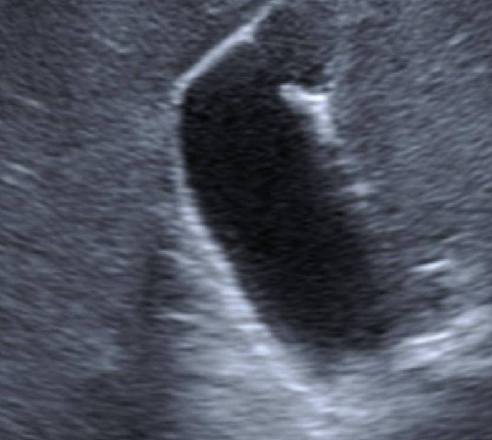What is Phrygian Cap Gallbladder?
Phrygian Cap Gallbladder is a benign anatomical variation distinguished by a fold or bend at the gallbladder's neck that resembles the shape of the Phrygian cap. This cap-like structure is the consequence of the gallbladder fundus flexing or folding back on itself. Despite the fact that this variant is mostly unharmful and doesn't manifest any symptoms, it might occasionally create discomfort or problems.
Symptoms of Phrygian Cap Gallbladder
Phrygian Cap Gallbladder typically doesn't produce any observable symptoms. However, a small amount of discomfort or sporadic pain in the upper right abdomen may be felt by some people. The discomfort is often dull and may be brought on by eating fatty or oily meals. Bloating, indigestion, and a post-meal sense of fullness are additional potential symptoms. A correct diagnosis is essential because these symptoms might potentially be linked to other gallbladder diseases.

Causes of Phrygian Cap Gallbladder
Phrygian Cap Gallbladder's precise causes are still mostly unknown. It is thought to be a congenital anomaly, which means it appears while the gallbladder grows in the womb. The uneven development of the gallbladder wall is assumed to be the cause of the flexure or folding of the gallbladder fundus. More research is required to pinpoint the precise origins of this anatomical variance, however genetic factors may contribute to its development.
Phrygian Cap Gallbladder Ultrasound
A standard diagnostic imaging procedure, such as an abdominal ultrasound, frequently leads to the accidental discovery of a Phrygian Cap Gallbladder. The presence of this anatomical difference can be confirmed by the ultrasonography, which can show the distinctive fold or bend at the gallbladder's neck. Additional tests might be carried out if symptoms are present to rule out other gallbladder disorders and ensure a correct diagnosis.
Treatment Options for Phrygian Cap Gallbladder
As stated previously, the majority of individuals with Phrygian Cap Gallbladder do not require special treatment. The ailment is typically regarded as innocuous and does not present a serious health risk. However, conservative management strategies may be suggested if symptoms are severe or chronic. This might involve dietary changes, such as avoiding fatty or greasy foods, as well as the use of over-the-counter drugs to relieve pain.
Management
Due to the fact that Phrygian Cap Gallbladder is predominantly a congenital defect, there are no known ways to prevent it from happening. However, leading a healthy lifestyle and eating a balanced diet helps support the general health of the gallbladder. For optimum gallbladder function, it is advised to exercise frequently and refrain from eating too many fatty or oily foods.
The Phrygian Cap Gallbladder, in conclusion, is a benign anatomical variation of the gallbladder that is typically asymptomatic. Even though it usually doesn't need treatment, people who are experiencing symptoms should see a doctor for an accurate diagnosis and management. For proper therapy and to rule out other gallbladder diseases, early discovery and accurate diagnosis are critical.








0 Comments